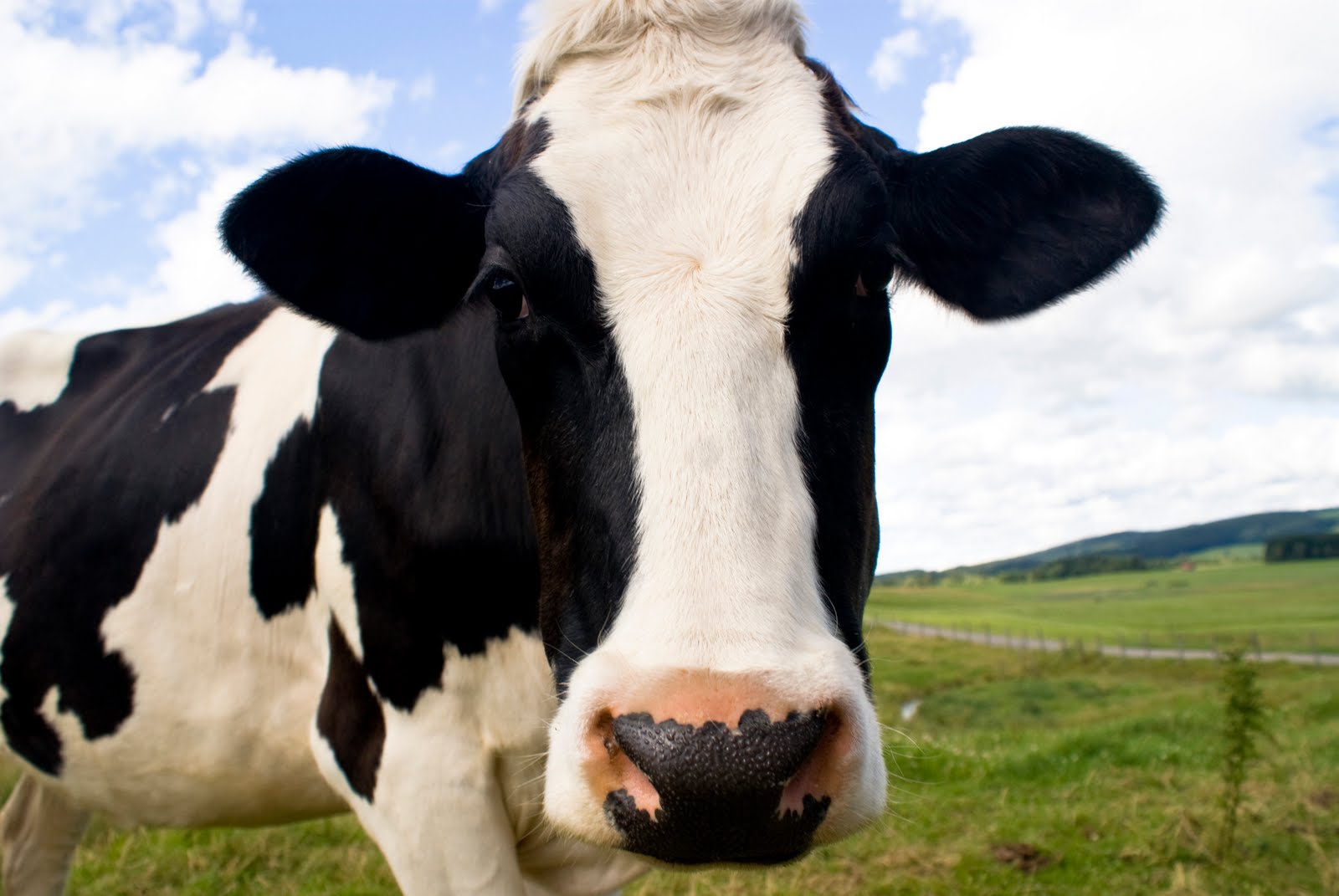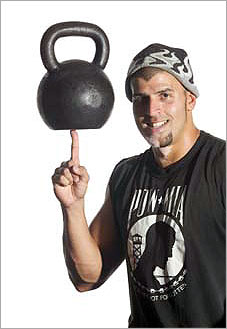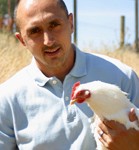The plant-based eating gurus are back for another round! For the first installment and more about our panelists, check out Part 1.
In Part 1 of our plant-based eating roundtable, we discussed the following questions:
- What should plant-based eaters be eating?
- Do plants provide enough amino acids?
- Where do most people go wrong?
- Will carbs from whole plant foods lead to excess body fat?
- Is it actually possible to gain muscle and fuel performance when eating plant-based?
- What’s the deal with soy?
Before we get in to Part 2, let’s step back and ask the big philosophical question:
Q. Why a plant-based diet?
John Pierre: I feel that life should be about “we” not “me”. Most people eat only to benefit themselves, not considering the suffering and death of animals, the devastation to the environment, and the lack of resources that will be left for future generations. And of course, a properly followed plant-based diet gives you vitality, so it’s an easy choice for me.
Jon Hinds: Three big reasons:
- I love animals, so I don’t want to harm them.
- I want to help global cooling, so I don’t support the meat/milk industry.
- It’s healthier for me, other people, and the planet.
Nathane Jackson: My mom passed away from cancer in the fall of 2009. During this time in my life, my research led me to the power of raw plant foods and the effect they have on our body.
Jack Norris: I want to contribute as little as possible to the death and suffering of animals.
Mike Mahler: I adopted a plant-based diet for moral reasons when I was 15 years old.
Jeff Novick: Philosophical reasons, health reasons, and because of the overall impact on personal and planetary health. Oh, and because it’s easier to sneak up on a carrot than a rabbit.
Q. What supplements should plant-based eaters consider?
Novick: Focus on food first and centre your diet around the most nutrient dense foods.
Pierre: Each person is unique, so everyone needs different levels of nutrients according to their lifestyle.
Hinds: In fact, plant-based eaters’ supplement needs are largely the same as omnivores.
PROTEIN
Hinds: Protein supplements can be useful. The best options are combinations of hemp, brown rice and pea protein. Vega is a good source for all of these and Sunwarrior makes a quality brown rice protein powder. I take a plant-based nutrient powder called Source of Life Energy Shake.
Mahler: A quality protein powder isn’t mandatory, but can be useful to ensure optimal protein intake. I like to start each day with a shake — loaded with fruits, coconut oil or coconut milk, greens, and protein powder.
FAT
Mahler: Essential fats are important. Flax seed oil takes care of ALA, and ALA can convert to EPA/DHA (to a degree), but it’s still a good idea to take an algae- based DHA/EPA product (such as V-pure) to ensure adequate levels are met.
VITAMINS & MINERALS
Jackson: Everyone needs Vitamin D. Unless you live in the southern hemisphere and spend a half hour outside each day, you should take a supplement. I also recommend a quality organic vitamin B-12 product.
Pierre: Vitamin B12, sunshine or Vitamin D, and iodine or sea vegetables. If you don’t get enough of these nutrients you can have problems with red blood cells (anemia), permanent neurological problems, symptoms that mimic dementia, elevated homocysteine levels (which may contribute to heart disease), depressed immunity, and a dysfunctional metabolism.
A 100% plant-based eater who consumes no fortified foods should consider Vitamin B-12.
Mahler: B vitamins are definitely important for energy, hormone optimization, and overall health. They get depleted when we are under stress.
Zinc and magnesium supplements are worth investigating since they are important for testosterone and insulin. I prefer Zinc citrate and transdermal magnesium oil.
Norris: Supplements are discussed here: http://www.veganhealth.org/
Q. What animal food do you feel causes the most health, body composition, and performance problems?
The experts are pretty much agreed: Milk does not do a body good.
DAIRY
Hinds: Today, most every animal product is unhealthy, as they often contain toxins (antibiotics, steroids, pesticides and hormones) that lead to major diseases (heart disease, cancer, stroke, diabetes, arthritis).
And milk does a body bad. The intake of milk products doesn’t seem to improve bone health and can blunt the absorption of nutrients. Many people cannot tolerate dairy, but are encouraged to consume it by nutrition experts/coaches.
Jackson: Yes, dairy products have been put on a pedestal but are a leading contributor to many bodily dysfunctions. Not only are more people lactose intolerant than ever, but cases of cancer, diabetes, fibromyalgia, acne, arthritis, and irritable bowel have been cured by eliminating dairy products.
Pierre: I agree; dairy products are the worst. You are ingesting a hormonal secretion of a bovine. I don’t feel that the body is equipped to digest these secretions. Dairy can lead to inflammation, asthma, joint pain, congestion, and of course weight gain.

MODERN FARMING
Mahler: It’s not necessarily the “animal foods” per se that cause problems, but the way animal foods are being raised/processed.
Meat, dairy, and eggs from factory farms are the most problematic. These animals live in miserable conditions, are given antibiotics, and provided low quality feed.
If the animals aren’t healthy, do you think that you’ll be healthy eating them? Of course not!
Moreover, imagine the stress that these animals experience on a daily basis. The adrenaline and cortisol they produce goes into their tissues, and this is what people are eating.
If you support the level of suffering that these animals experience you shouldn’t be surprised when it comes full circle and causes human health problems. Even if you don’t care about animal welfare, consider having more respect for yourself and consuming meat, dairy, and eggs from animals that are treated humanely and fed optimal diets.
Q. What do you eat in a typical day — and a non-typical day (travel days, busy days, the kids are sick, your juicer broke, etc.)?
Hinds: I start the day with water and some greens powder to alkalize my body. When at home:
- soaked oats, berries, nuts, Source of Life Energy Shake
- banana, mango, plant protein, nuts
- kale, butternut squash, pine nuts
- greens powder and water
- sprouted tortillas (Ezekiel brand), red pepper hummus, homemade veggie nut burgers, broccoli and peas
- greens powder and water
When traveling:
- greens smoothie at a health food store: spinach, mango, spirulina, raw nuts
- two pieces of fruit and/or some trail mix
- salad bar (usually at Whole Foods Market): kale, beets, corn, beans, pumpkin seeds
- greens powder and water (I travel with this stuff)
- if we’re eating at a typical restaurant like P.F. Chang’s, we’ll get sautéed spinach, green beans, and brown rice. Side orders are the way to go when traveling. At Mexican restaurants I’ll get sides of fajita filling (onions, bell peppers), black beans and red rice. This is a great meal; just make sure to say “no cheese!”
- greens powder and water
Jackson: The majority of the time I follow the schedule below. When I travel or go out to eat, I just rely on raw fruits and vegetables.
- water with lemon and cayenne pepper
- large bowl of mixed fruit — banana, dates, mango, grapes, apple or pear, goji berries, hemp seed and soaked sunflower or pumpkin seeds
- post workout smoothie — bananas, dates, carob powder, plant protein powder, goji berries, maca and coconut water
- large leafy green salad with raw vegetables and soaked nuts or raw hummus on dehydrated veggie wraps.
- green juice — cucumber, celery, kale, apples (sometimes beets, carrots, lemons, ginger, etc.)
- whatever I feel like (I tend to favor more protein and fat at this point in the day), e.g., raw zucchini pasta and raw pasta sauce, or raw mushroom & nut burgers, or large salad, or a juice/green smoothie
- plant protein powder, almond milk and peppermint oil
Novick: My diet is very simple and ordinary. It doesn’t change much, regardless of where I am. It’s almost entirely composed of foods in their natural form. While I’m not a breakfast eater, if I did, it would be oatmeal and fruit. Most of my lunches and dinners are centred around vegetables, intact whole grains, and legumes. I have a new DVD out called Jeff Novick’s Fast Food, which explains my theory and system based on 10-minute meals with no more than 5 ingredients, and can be done with no more than scissors and a can-opener for $3/day.
Q. Where do you get food and recipe ideas?
Hinds: I’m always reading plant-based eating books. My favorites are:
- The Thrive Diet by Brendan Brazier
- Superfoods by David Wolfe
- The Engine 2 Diet by Rip Esselstyn
- Skinny Bitch by Rory Freedman & Kim Barnouin
I usually keep it simple and just eat the foods I like. All my meals can be made in a few minutes.
Jackson: Most of raw foodies have blogs. If you type in “raw” or “vegan” before a recipe name you’re looking for, I can almost guarantee that you will find someone with a blog post/website recipe. I have a section on my blog titled RAWsome Vegan RAWcipes. I also like Dr. Gabriel Cousens and his Tree of Life café books as well as The Thrive Diet by Brendan Brazier.
Novick: I graduated from culinary school and was a former chef, so I make up recipes myself. Most of them come from playing in the kitchen with basic foods under the heading of “making things simple, easy and tasty.”
Mahler: I am half Indian and fortunate to have a mother who is a lifelong vegetarian. I learned the basics of plant-based eating from her and went on to personalize it for my training goals. I like Indian food, rich in beans and vegetables. The website vegsource.com has great recipes. Brendan Brazier and Robert Cheeke have great books on the vegan diet loaded with recipes.
Q. For someone who eats a more animal-based and/or processed diet (read: most of North America), what’s one simple step they can take starting right now to eat more nutritious plants?
Hinds: I’ll give you three tips:
- Substitute rice milk or almond milk for cow’s milk
- Substitute veggie patties for meats
- Instead of snacking chips or pretzels, have an orange or an apple
Jackson: Green smoothies are a great way for adults (and kids) to incorporate leafy greens into their diet. Adding a handful of spinach into a fruit smoothie is a solid start.
Pierre: Eat fruits and/or vegetables with every meal. Make smoothies with fruits/vegetables. Enjoy vegetables with dips and herbal seasonings.
Mahler: Add a baby spinach salad to your daily meal rotation. Each time you eat, make sure 2/3 of your plate is comprised of vegetables.
Novick: As Nike always says, just do it!
Dos and don’ts
If you’re considering moving towards a plant-based diet, or just want some more plant-based choices, here are some more experts’ tips:
- DO consider the many reasons to add more plants — from preserving the environment, to helping animals, to improving your own health.
- DO be sure to get enough protein, good fats, vitamins, and minerals — via whole foods and sunshine first, then supplements if you need them.
- DON’T consume dairy nor factory-farmed animal products.
- DO look for organic, small-farmed, humanely raised animal products, if you eat them.
- DO simple additions and substitutions to add more plants.
- DO be creative, especially when traveling and at restaurants.
- DO incorporate a greens supplement if necessary.
- DO check out the variety of resources available online — there are lots!
Our panel
 |
Jon Hinds runs Monkey Bar Gym in Madison, WI. |
 |
Nathane Jackson is an NSCA certified strength & conditioning coach and kettlebell trainer specialist in Toronto, Canada. Nathane is a pro fitness model, physique competitor, and fitness personality. |
 |
Mike Mahler is a writer, strength trainer, and kettlebell instructor in Las Vegas, NV. |
 |
Jack Norris is a Registered Dietitian and the President and co-founder of Vegan Outreach. |
 |
Jeff Novick holds an MS and RD, is Vice President for Executive Health Exams International, lectures at the McDougall Program in Santa Rosa, California, and serves as an Adjunct Professor in the School of Health Sciences for Kaplan University. |
 |
John Pierre is a nutrition and fitness consultant specializing in geriatrics, nutrition, fitness, women’s empowerment, green living, and cognitive retainment and improvement. |
Eat, move, and live… better.©
Yep, we know… the health and fitness world can sometimes be a confusing place. But it doesn’t have to be.
Let us help you make sense of it all with this free special report.
In it you’ll learn the best eating, exercise, and lifestyle strategies — unique and personal — for you.




Share